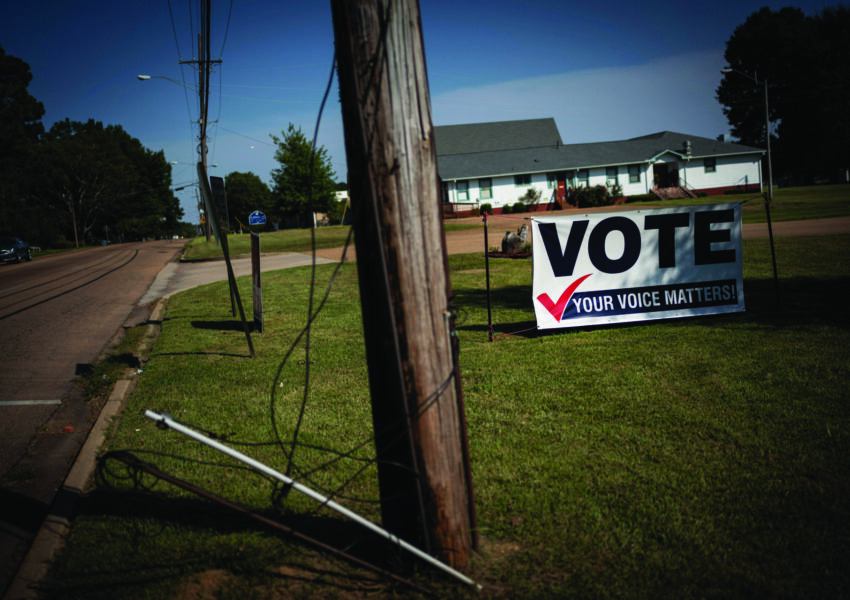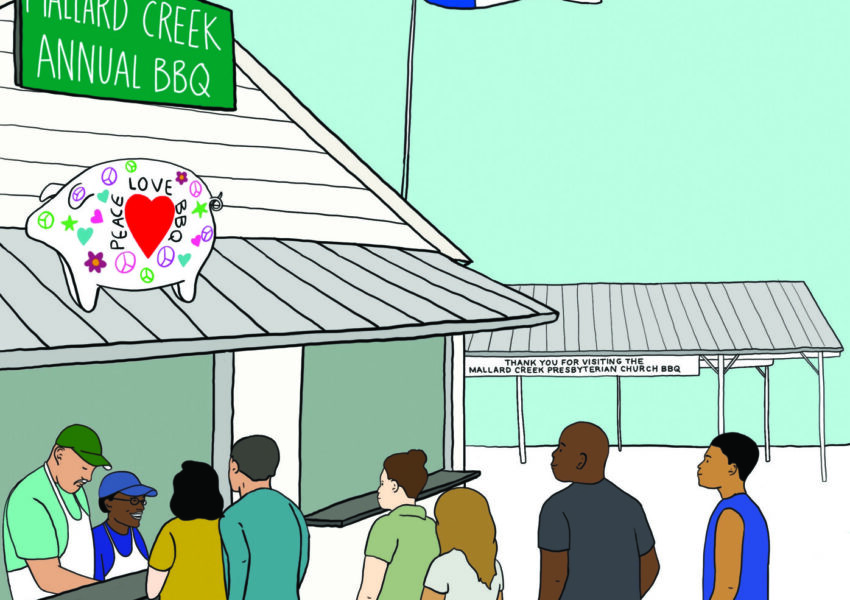Missed Cues Dining room politics start at the host stand
by Osayi Endolyn (Gravy, Winter 2016)
I learned about the politics of food and dining early. My first job was hosting at Red Robin in Moreno Valley, California, sixty miles east of Los Angeles. At fifteen years old, I was the youngest employee in the restaurant, a chain known for big burgers and endless servings of steak fries. As we approached closing time one Sunday night, just two servers worked the floor, so I alternated incoming parties between them.
![]() One section was at the front of the restaurant, while the other was adjacent to the host stand in the bar area. Things were going fine until I tried to seat a party of African Americans up by the bar. I had just seated the front dining room. On paper, this was the right call. I guided the group toward a booth, and the man instantly shook his head and backed away. He demanded a seat in the front.
One section was at the front of the restaurant, while the other was adjacent to the host stand in the bar area. Things were going fine until I tried to seat a party of African Americans up by the bar. I had just seated the front dining room. On paper, this was the right call. I guided the group toward a booth, and the man instantly shook his head and backed away. He demanded a seat in the front.
“Look around,” he said to me, jabbing his finger toward the bar. “It’s full of black people up there.”
He was right. The bar was mostly black, and the front section was noticeably less diverse. Where I had seen an even distribution of server sales, he saw a segregated dining room.

My manager, an unflappable man from Mexico, tried to assuage him, and later expressed utter confusion at the customer’s reaction toward me, a fellow black person. But even then, I got it. As a kid, my mom kept me flush with black history books and flashcards. The man was likely old enough to participate in the Civil Rights Movement or at least share tales of the Black Power Movement that evolved from it. A bar area of mostly black diners (in the context of a dining room that looked the opposite) triggered his frustration. The man didn’t think I was racist. He felt like I was careless.
The man didn’t think I was racist.
He felt like I was careless.
“You have to pay attention to these things,” he admonished me. I bristled in the way that only teenagers can show irritation—it wasn’t my fault that every other party had been brown-skinned. I hated that he expected me to play with the optics.

My education on this bumpy landscape of identity and dining continued almost fifteen years later. I hosted at a fine-dining restaurant in Midtown Atlanta. One afternoon, a manager called me into the office before my shift and handed me a typed letter, sent certified mail (return receipt!). She and two other managers averted their eyes as I read silently.
The letter was addressed to the restaurant owner. I recall that the author was identified on her letterhead as a New York lawyer. She complained that I was rude to her and her husband on a recent visit. I remembered these guests. The couple, celebrating their anniversary, had been about thirty minutes late for their reservation and had not phoned to notify us that they were still en route. Another party was seated in the prime, corner banquette originally marked for them. When the couple arrived, I did have a flash of panic. The next available table was not considered as nice for a special occasion. I paused to consider other options, but seated them promptly.

The woman read my flinch as a precursor to a night of racist acts. She wrote that the black hostess was obviously offended by her, an Asian woman, and her black husband. That evening, each time I circled the dining room to assess the status of tables, an act of anticipation and timing crucial to any host, she believed I was sending passive-aggressive, anti-interracial signals.
“By the way,” she wrote, “thanks for ruining our anniversary.” She did not want a response to her letter. I was so visibly upset at her accusations that the managers, all white, actually apologized to me—maybe rethinking their decision to show me the letter at all. “We know who you are,” they said.
Though these incidents took place years ago, I am still struck at how serious grievances arose from innocent, seemingly innocuous acts. I wonder if a host of a different race would have received the same complaints. It’s a loaded question. And I’ll never know the answer.
I do know, after several years of food and drink writing (and more recent work with the SFA), that we as a culture are more dialed into the subtle implications of food and dining, who fits in where, than ever before.

Like many Gravy readers, I’m intrigued by the opportunities for understanding and the potential minefields in the culinary world—back of the house, at the bar, home kitchens, in food media, and the places in between. I will use this space to explore the unspoken codes, tacit agreements, and strange circumstances that surface while eating in the South (and sometimes beyond). I hope to ask new questions and provoke discussions. Mostly, I just want for us all to get to know each other better.
Osayi Endolyn’s writing explores food, culture and identity. Her work appears in the Oxford American, the Washington Post, the Wall Street Journal, and Eater.




